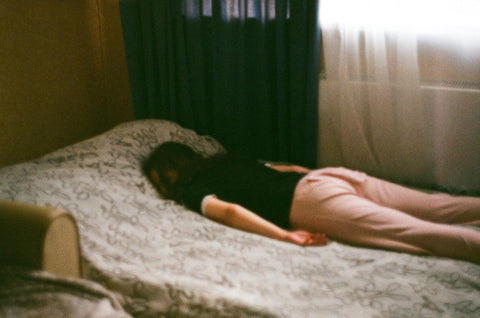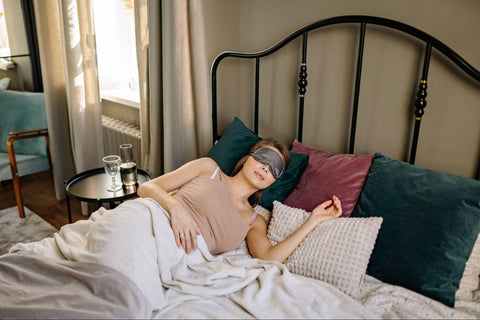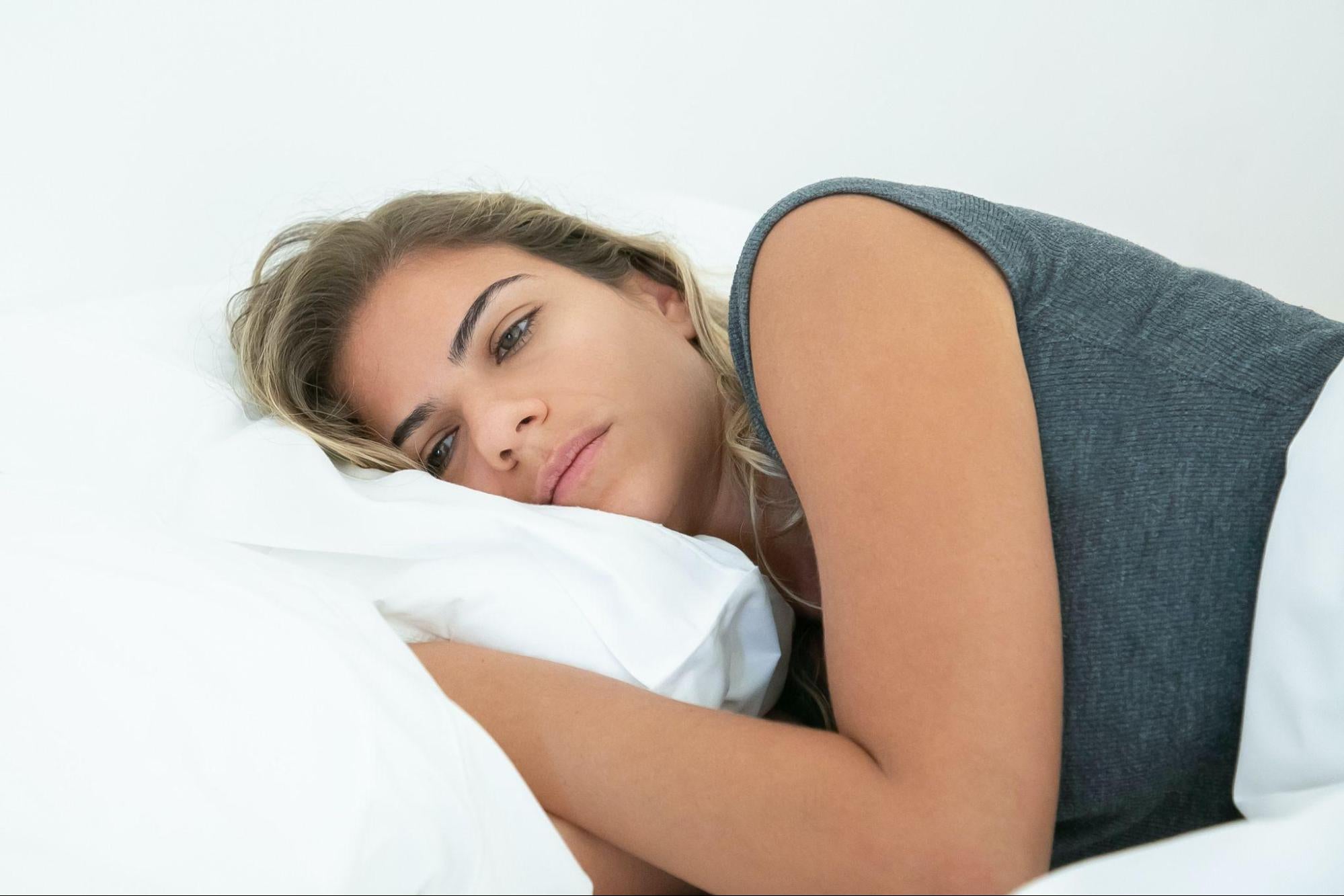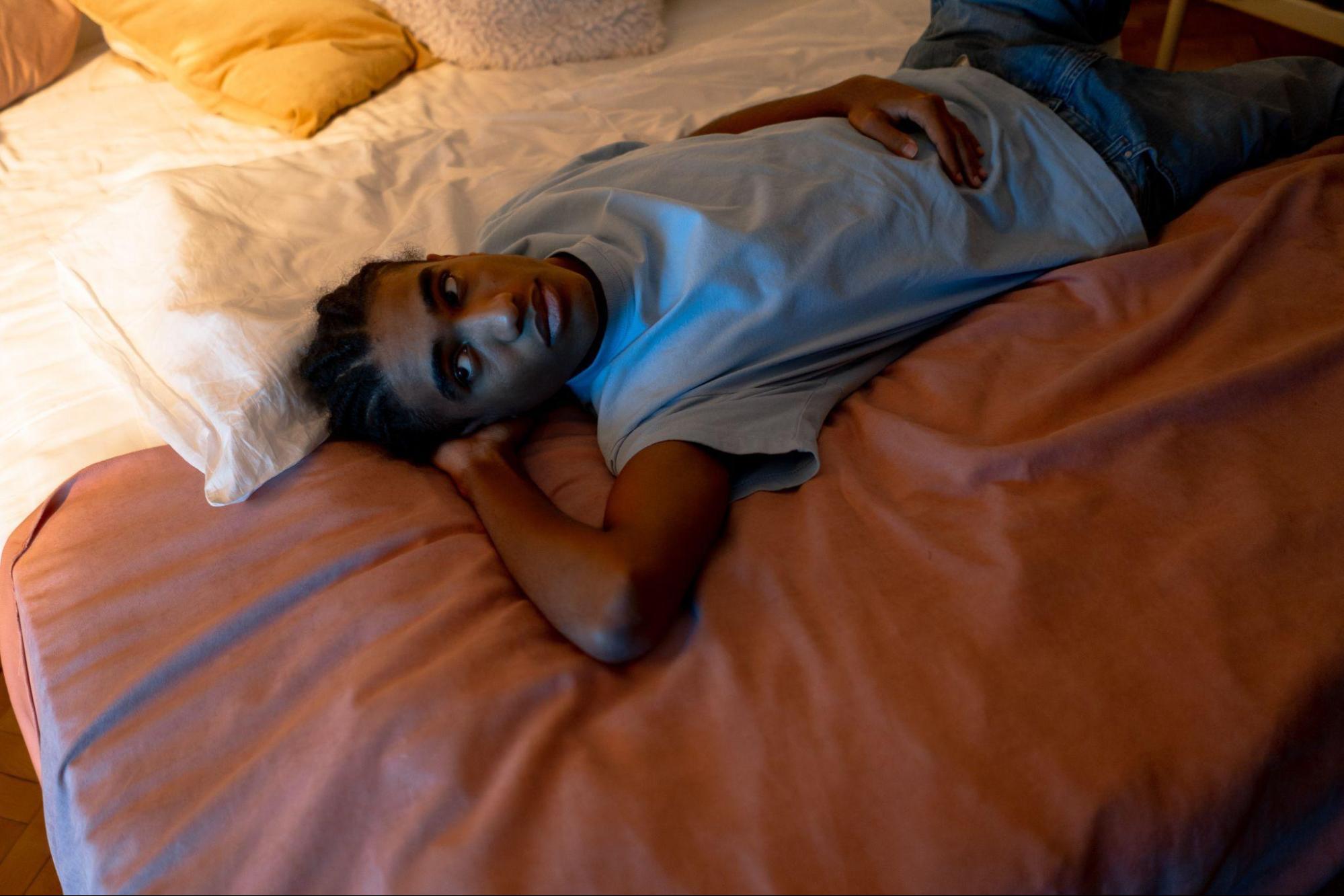In the demanding world of athletics, where split-second decisions and marginal gains can mean the difference between victory and defeat, optimizing every facet of an athlete's routine becomes paramount. While rigorous training and nutrition often take the limelight, the significance of quality sleep in enhancing performance, recovery, and overall well-being cannot be overstated.
Achieving restorative sleep is a combination of multiple factors, from creating the ideal sleep environment to understanding the body's natural rhythms. This guide dives into practical strategies and insights to help athletes improve their sleep quality, leading to marked improvements on and off the field. Dive deeper into the nuances of sleep and unlock the potential for better athletic results.
Related Link: The Best Supplements for Sleeping
The Science Behind Sleep and Athletic Excellence
Understanding Sleep Cycles and Enhanced Athletic Recovery
Every human, whether an athlete or not, undergoes various sleep stages. These are majorly bifurcated into REM (rapid eye movement) and non-REM cycles. Each of these stages has a distinct role in rejuvenating both the mind and the body. Athletes, in particular, should pay attention to the deep sleep phase, which falls under the non-REM category. This phase facilitates muscle recovery, drives protein synthesis, and promotes tissue growth. By comprehending the significance of each of these stages, athletes can make informed choices about their sleep habits, ensuring they attain the depth of sleep that's indispensable for top-tier recovery.
Deepening the Connection between Sleep Duration and Peak Athletic Efficiency
The efficacy of sleep is determined not just by its quality but also by its duration. Numerous studies have underscored that athletes experiencing 7-9 hours of uninterrupted, high-quality sleep generally exhibit enhanced performance. This manifests in sharper reaction times, amplified concentration levels, and a diminished risk of injuries. Conversely, inadequate sleep can precipitate several challenges. These range from diminished glycogen storage and escalated levels of cortisol (a stress hormone) to compromised cognitive abilities, posing significant risks to athletic accomplishments.
Architecting the Optimal Sleep Ambiance
Mastering the Dynamics of Room Temperature and Pervasive Darkness
A conducive environment is the bedrock of good sleep. One fundamental factor is the room's temperature. Maintaining a slightly cool ambient temperature, hovering between 60-67 degrees Fahrenheit, can induce superior sleep quality. This is because a cooler environment assists in lowering the body's core temperature, signaling it to drift into sleep. Hand in hand with temperature is the factor of light. Ensuring complete darkness, achieved using blackout curtains or eye masks, can amplify the production of melatonin, a hormone instrumental in sleep regulation.
Silence and Optimal Comfort: The Pillars of Unbroken Sleep
One of the chief adversaries of profound sleep is noise. Unexpected auditory disruptions can truncate sleep, barring athletes from reaching the regenerative deep sleep stages. Utilizing tools such as white noise machines, earplugs, or advanced noise-canceling headphones can be game-changers. Furthermore, physical comfort cannot be discounted. Investing in ergonomically designed mattresses and pillows that render optimum support can elevate the quality of sleep, ensuring that athletes wake up refreshed, without any residual stiffness or discomfort.
Related Link: Best Fat-Burning Workouts: Exercises to Lose Weight
Cultivating Habits That Augment Sleep Quality
Championing a Robust, Consistent Sleep Regimen
Similar to how athletes maintain training schedules, a consistent sleep routine is paramount. Adhering to fixed timings for retiring and waking up daily, inclusive of weekends, can synchronize the body's circadian rhythm. This regularity makes the process of falling asleep and rising in the morning more seamless and revitalizing.
Crafting Mindful Pre-Sleep Rituals for Superior Sleep Initiation
The period preceding sleep profoundly shapes its quality. Engaging in serenity-inducing activities such as immersing in a book, practicing meditation, or indulging in deep breathing techniques can set the stage for exemplary sleep. In stark contrast, overly stimulating activities, especially exposure to screens, can be detrimental. The blue light emitted by these devices can stymie the secretion of melatonin, making the embrace of sleep increasingly challenging.
Dietary Choices: The Silent Architects of Sleep Quality
Decoding the Sleep Implications of Caffeine and Alcohol
Athletes often resort to caffeine for a pre-training energy surge. While its benefits in this context are undeniable, imbibing caffeine-rich substances near bedtime can wreak havoc on sleep patterns. Being a stimulant, caffeine has the propensity to postpone sleep initiation and curtail the overall sleep duration. Parallelly, alcohol, despite its sleep-inducing reputation, often fractures sleep continuity, leading to frequent nocturnal awakenings.
Integrating Foods that Act as Sleep Catalysts
Certain edibles have earned accolades for their sleep-enhancing prowess. Magnesium-laden foods such as almonds, or those rich in tryptophan like turkey, can act as natural sleep promoters. Moreover, cherries, brimming with melatonin, and kiwi, replete with beneficial antioxidants, can be incorporated into diets to facilitate nuanced improvements in sleep quality.
Looking for performance-optimizing gummies to help you achieve your fitness goals? Visit our website today!
Navigating the Maze of Sleep Disorders

Spotting Prevalent Sleep Challenges in Athletes
Despite their robust physiques, athletes are not fortified against sleep disorders. They could be besieged by conditions such as insomnia, sleep apnea, or restless leg syndrome, each of which can drastically impair performance. Early recognition of symptoms, be it chronic daytime weariness, pronounced snoring, or extended sleep initiation times, can be instrumental in diagnosing and rectifying these issues.
Seeking Expertise and Tailored Treatments
Persistent sleep challenges or suspicions of underlying sleep maladies warrant professional intervention. Sleep experts can embark on meticulous evaluations, often encompassing sleep studies, to identify precise concerns and proffer tailored remedies. This could encompass cognitive behavioral therapy tailored for insomnia or leveraging CPAP devices to alleviate sleep apnea. Addressing these challenges head-on can metamorphose both an athlete's performance and holistic health.
Do you have questions regarding our performance gummies? Message us today!
Rest, Recovery, and Athletic Excellence

In the rigorous realm of sports, success isn't just about talent or hard work; it's about holistic well-being. And at the heart of this wellness lies sleep. By fine-tuning sleep habits, creating conducive environments, and recognizing potential sleep challenges, athletes can harness the transformative power of rest. As sleep quality improves, so does athletic prowess, proving once again that sometimes, the secret to pushing boundaries lies in the quiet, restful embrace of the night.
Related Link: Getting Rid of Armpit and Underarm Fat



